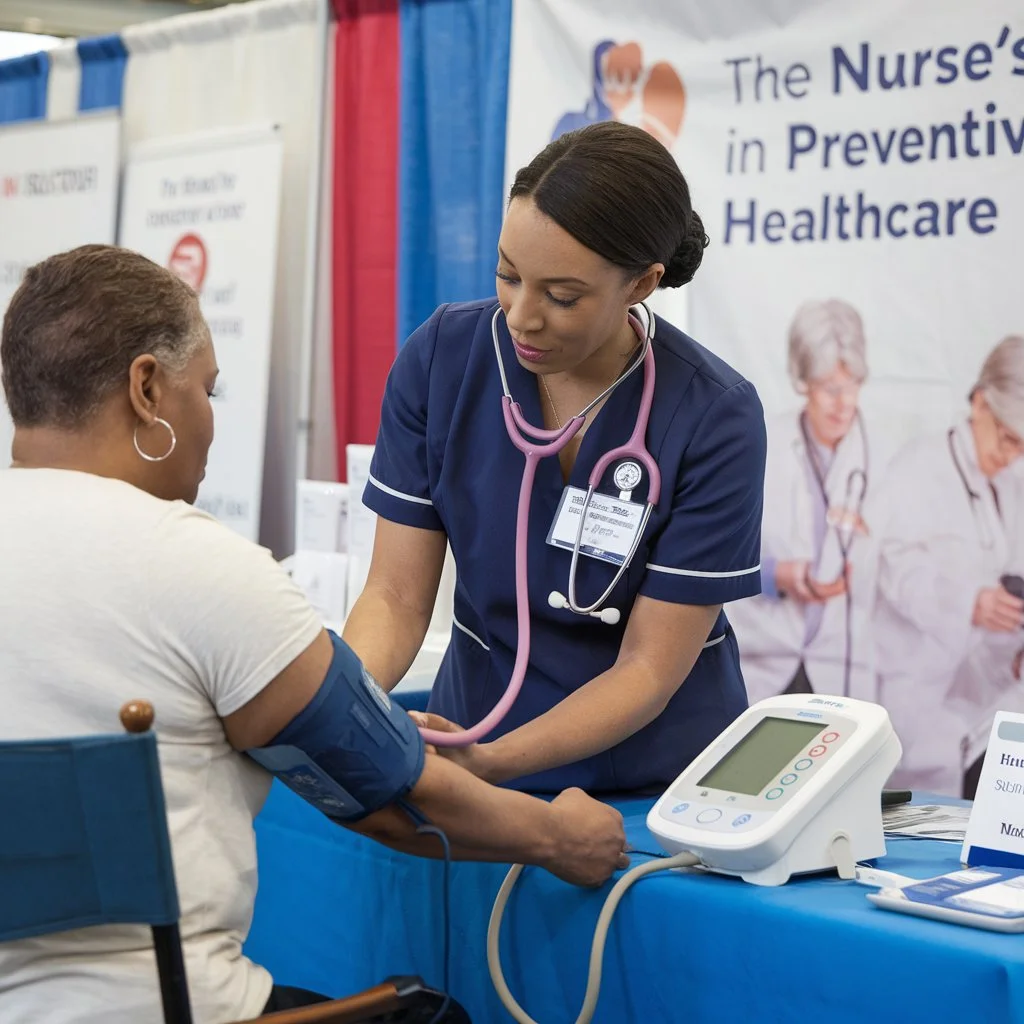Did you know that nurses play a crucial part in ensuring you stay healthy, even before you fall sick? Yes, they’re not just there when you’re ill! When it comes to preventive healthcare, nurses are like your secret superheroes, working behind the scenes to keep communities thriving and healthier than ever. Let’s dive into how the nurse’s role in preventive healthcare is reshaping lives every day and why it’s so important for students like you to understand this.
Thank you for reading this post, don't forget to subscribe!
What Is Preventive Healthcare?
Before we explore a nurse’s role in preventive healthcare, let’s get clear on what preventive healthcare actually is. Preventive healthcare focuses on stopping illnesses before they happen. Sounds smart, right? It involves:
- Screenings to detect diseases early, like cancer or diabetes.
- Vaccinations to prevent infections.
- Health education about lifestyle choices, such as eating balanced meals or exercising.
When done right, preventive healthcare can save lives, reduce hospital visits, and improve quality of life—and this is where nurses step in.


1. Nurses as Educators in Preventive Healthcare
Think of nurses as your friendly teachers in a medical setting. From the moment you walk into a clinic or school health room, their goal is to educate you about staying healthy. Their role includes:
- Teaching you the importance of hygiene, like washing your hands frequently (Who knew soap could be a superhero too?).
- Explaining dietary choices for long-term health.
- Sharing tips on how to avoid stress and build mental resilience.
For example, let’s say you have a workshop at school on healthy eating. That informative session you attend is often led by a nurse who understands how balanced diets impact your overall growth. Education is the backbone of the nurse’s role in preventive healthcare.
2. Screening and Early Detection
Ever had a health checkup in school where the nurse measured your height, weight, or eyesight? That wasn’t just a routine—it was preventive healthcare in action. Nurses conduct screenings that catch illnesses early when they’re easiest to treat. For instance:
- Blood pressure checks help detect heart conditions.
- Vision tests identify problems before they worsen.
- Regular BMI tracking ensures healthy growth in teenagers.
By catching these early signs, nurses are like detectives preventing future complications.
3. Promoting Vaccinations: The Unsung Champions
Remember the last time you got a shot and winced? While it might not be fun, nurses administering vaccinations protect millions from deadly diseases like measles or tetanus. Through awareness programs, immunization drives, and even just calming nervous kids (or adults!) before a shot, they take an active part in preventing diseases from spreading.
Here’s something surprising: Nurses even counsel parents who hesitate about vaccines, helping them make informed decisions.
4. Advocates for Healthy Lifestyles
Nurses lead the charge when it comes to encouraging healthier lifestyles. Their recommendations can reshape how communities approach health. Nurses might:
- Suggest exercise routines to counteract sedentary habits.
- Highlight the benefits of quitting smoking (We’re looking at you, harmful habits!).
- Organize fun runs, yoga sessions, or Zumba classes as a community health initiative.
Their advice may seem small, but over time, it creates powerful ripple effects for better health outcomes.
5. Emotional and Mental Health Support
Preventive healthcare isn’t just about physical health. Mental and emotional well-being are equally important, especially in today’s stressful world. Nurses:
- Offer basic counseling for anxiety, stress, or grief.
- Run group therapies or mindfulness workshops in schools or clinics.
- Encourage open communication about mental health to erase the stigma.
Nurses are your biggest cheerleaders—they care about your overall happiness just as much as your health.

Why Is the Nurse’s Role in Preventive Healthcare So Important?
If we think about it, a nurse’s impact can be compared to planting seeds for a healthier tomorrow. Their work is:
- Life-changing for communities with limited medical resources.
- Cost-effective, as prevention is often cheaper than curing illnesses.
- Empowering, because they give you the tools and knowledge to make better choices.
Understanding the nurse’s role in preventive healthcare can inspire young students, like you, to see healthcare careers differently—as exciting and deeply fulfilling opportunities.
Frequently Asked Questions (FAQs)
1. What are some common preventive healthcare measures nurses implement?
Nurses implement measures like health screenings, vaccine administration, and lifestyle counseling for diet and exercise.
2. How do nurses help in preventing diseases at schools?
School nurses conduct vision tests, health checkups, vaccinations, and educate students on personal hygiene and healthy habits.
3. Can nurses detect mental health issues in preventive healthcare?
Yes! Nurses provide mental health support by identifying early warning signs of stress, anxiety, or depression.
4. Why are screenings so crucial in preventive healthcare?
Screenings help detect diseases early, making them easier to treat before complications arise.
5. What careers are available if I’m interested in preventive healthcare?
Careers include public health nursing, community health education, and roles in wellness coaching or healthcare administration.
Final Thoughts
To put it simply, the nurse’s role in preventive healthcare isn’t just about treating illnesses but about stopping them in their tracks. Through education, screenings, lifestyle advice, and emotional support, they help build healthier communities.
If you’ve ever felt grateful for a health tip or vaccination—thank a nurse today!



Comments are closed.